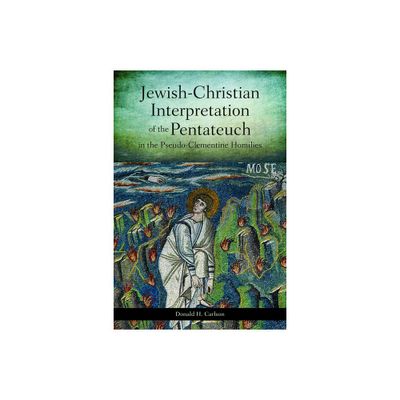Home
This Strange Story: Jewish and Christian Interpretation of the Curse of Canaan from Antiquity to 1865
Loading Inventory...
Barnes and Noble
This Strange Story: Jewish and Christian Interpretation of the Curse of Canaan from Antiquity to 1865
Current price: $60.99


Barnes and Noble
This Strange Story: Jewish and Christian Interpretation of the Curse of Canaan from Antiquity to 1865
Current price: $60.99
Loading Inventory...
Size: OS
*Product Information may vary - to confirm product availability, pricing, and additional information please contact Barnes and Noble
This book addresses the claim that an American antebellum era anti-African reading of "the curse of Canaan" story originated in rabbinic literature. By tracing the curse of Canaan's history of interpretation from the beginning of the Common Era to 1865, with particular emphasis on the neglected medieval period, this work examines this long-held false claim.Although Jewish readings of the curse of Canaan appear in medieval Christian commentaries, no Jewish references to skin color are repeated in Christian exegesis. Therefore, the book argues that the anti-African antebellum reading develops in response both to abolitionism and the biblical text's establishment of a social hierarchy that divides humankind into slaves and masters. The pro-slavery reading is an extension of Christian allegorical exegesis of the curse of Canaan, in which Shem, Ham, and Japheth represented different groups of people depending upon the interpreter's historical context, usually Jewish Christians, Jews or Christian heretics, and Gentile Christians respectively. Southerners and their allies simply changed the typology, making Shem the ancestor of brown people, Ham the ancestor of black people due to a reading of his genealogy in Genesis 10, and Japheth the ancestor of white people. The new typology justified African slavery as a divinely ordained and sanctioned economic system, just as the old typology justified Christian supersessionism.


















